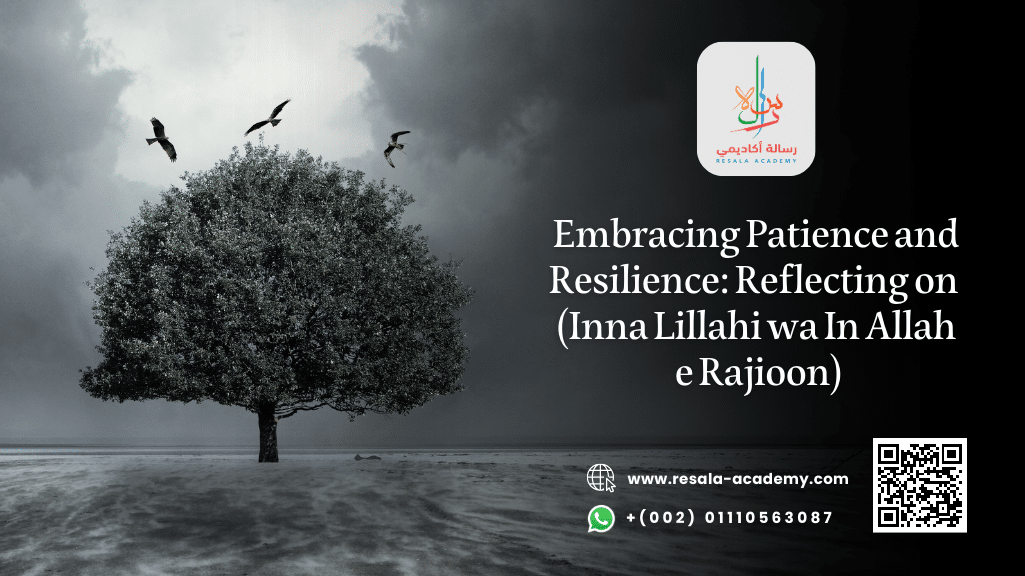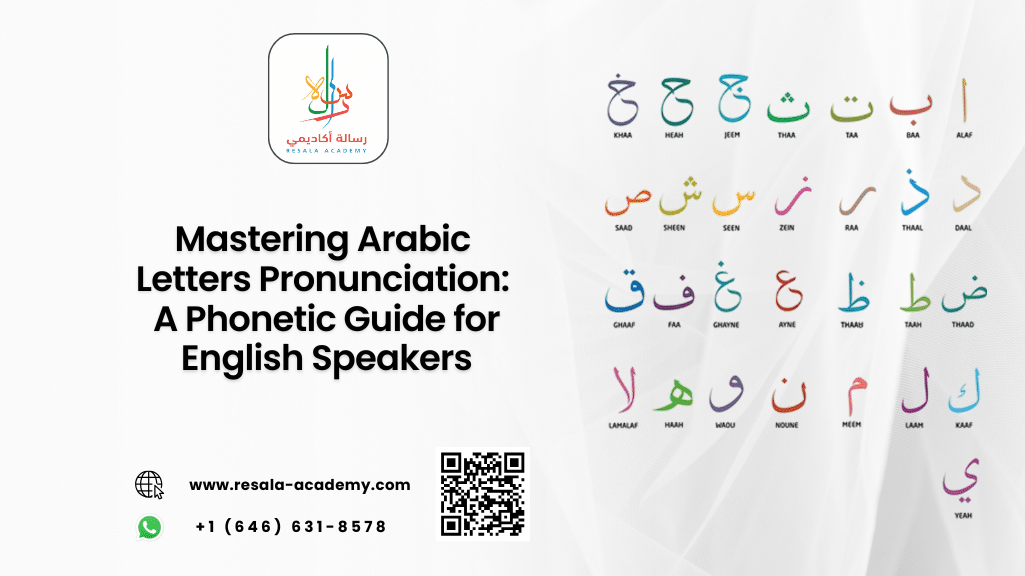Table of Contents
How Long Does It Take to Learn Arabic to Understand Arabic Proverbs and Idioms?
Arabic is a language of beauty, depth, and profound cultural significance. Its proverbs and idioms are not just linguistic expressions; they are windows into the wisdom, traditions, and values of Arabic-speaking societies.
For non-native speakers, mastering Arabic proverbs and idioms is a rewarding milestone, but it raises the question: how long does it take to learn Arabic to the point where you can understand and use these expressions fluently?
The answer depends on several factors, including your learning goals, dedication, and the resources you use. In this article, we’ll explore the time it takes to learn Arabic, the cultural richness of its proverbs and idioms, and how institutions like Resala Academy can help you on this journey.
Why Are Arabic Proverbs and Idioms So Important?
Arabic proverbs and idioms are more than just words; they are carriers of wisdom, humor, and cultural identity. These expressions often encapsulate life lessons, moral values, or practical advice in a few poetic words. Understanding them allows you to connect with native speakers on a deeper level and appreciate the cultural nuances of the language.
– For example, consider this timeless Arabic proverb:
“من جد وجد”
“Whoever strives, succeeds.”
This proverb reflects the value of hard work and determination, a principle deeply rooted in Arabic culture and Islamic teachings.
– Similarly, idioms like “على قد لحافك مد رجليك” (“Stretch your legs only as far as your blanket allows”) teach the importance of living within one’s means.
By learning these expressions, you gain more than just language skills—you gain insight into the mindset and values of Arabic-speaking communities.
How Long Does It Take to Learn Arabic?
The time it takes to learn Arabic varies depending on your goals and the level of proficiency you aim to achieve. Here’s a breakdown to the best ways to learn Arabic:
1. Basic Conversational Skills
If your goal is to hold simple conversations and understand basic expressions, you can achieve this in 6-12 months with consistent study. This level involves learning essential vocabulary, grammar, and pronunciation.
2. Intermediate Proficiency
To reach a level where you can read and write in Arabic, as well as understand common proverbs and idioms, you’ll need approximately 1-2 years of focused learning. At this stage, you’ll start to grasp the cultural context behind many expressions.
3. Advanced Fluency
Achieving advanced fluency, where you can understand complex idiomatic expressions and classical Arabic, may take 2-3 years or more. This level requires a deep understanding of Arabic grammar, vocabulary, and cultural nuances.
The Cultural Richness of Arabic Proverbs and Idioms
Arabic proverbs and idioms are deeply embedded in the culture and often reflect universal truths in poetic and metaphorical ways. Here are some examples that highlight their richness:
Proverbs About Patience and Perseverance
“الصبر مفتاح الفرج”
“Patience is the key to relief.”
This proverb emphasizes the importance of patience in overcoming challenges, a value deeply rooted in Islamic teachings.
“من صبر ظفر”
“Whoever is patient will triumph.”
This expression highlights the rewards of perseverance and endurance.
Proverbs About Wisdom and Caution
“درهم وقاية خير من قنطار علاج”
“An ounce of prevention is better than a pound of cure.”
This proverb advises caution and foresight to avoid future problems.
“إذا كان الكلام من فضة فالسكوت من ذهب”
“If speech is silver, silence is gold.”
This idiom underscores the value of thoughtful silence over unnecessary talk.
Proverbs About Unity and Cooperation
“يد واحدة لا تصفق”
“One hand cannot clap.”
This proverb highlights the importance of teamwork and collaboration.
“الاتحاد قوة”
“Unity is strength.”
A simple yet powerful reminder of the benefits of working together.
Idioms That Add Color to the Language
“وقع بين المطرقة والسندان”
“Caught between the hammer and the anvil.”
This idiom describes being in a difficult or inescapable situation.
“القشة التي قصمت ظهر البعير”
“The straw that broke the camel’s back.”
This expression refers to a small issue that causes a major problem after a buildup of tension.
By learning these proverbs and idioms, you not only enhance your language skills but also gain a deeper appreciation of Arabic culture and its worldview.
Factors That Influence the Time Needed to Learn Arabic
1. Your Native Language
If your native language shares similarities with Arabic (e.g., other Semitic languages like Hebrew), you may find it easier to learn. For English speakers, Arabic is considered one of the more challenging languages due to its unique script, grammar, and pronunciation.
2. Learning Methods
The learning method you choose plays a significant role in your progress. Structured courses, like those offered by Resala Academy, provide a clear roadmap for learning Arabic efficiently.
3. Consistency and Practice
Regular practice is essential. Dedicate time each day to reading, writing, listening, and speaking Arabic to reinforce your skills.
4. Focus on Proverbs and Idioms
If your primary goal is to understand Arabic proverbs and idioms, you’ll need to focus on cultural and contextual learning. This involves studying not just the language but also the historical and social contexts in which these expressions are used.
The Role of the Quran and Hadith in Learning Arabic
For many learners, the Quran serves as both a motivation and a resource for learning Arabic. The Quran is written in classical Arabic, which forms the foundation of Modern Standard Arabic. Understanding Quranic Arabic can deepen your appreciation of the language and its proverbs.
- Evidence from the Quran
The Quran emphasizes the importance of understanding its message:
“إِنَّا أَنزَلْنَاهُ قُرْآنًا عَرَبِيًّا لَّعَلَّكُمْ تَعْقِلُونَ”
“Indeed, We have sent it down as an Arabic Quran that you might understand.”
This verse highlights the significance of learning Arabic to comprehend the Quran’s teachings.
- Evidence from Hadith
The Prophet Muhammad (peace be upon him) also emphasized the importance of learning and teaching:
“خيركم من تعلم القرآن وعلمه”
“The best of you are those who learn the Quran and teach it.”
By learning Arabic, you gain access to the rich linguistic heritage of the Quran and Hadith, which are filled with proverbs and idiomatic expressions.
How Resala Academy Can Help You Learn Arabic
Resala Academy is a leading online platform offering Arabic and Quran classes for non-native speakers. our courses are designed to cater to learners of all levels, from beginners to advanced students. Here’s why Resala Academy is the ideal choice:
- Expert Instructors: Learn from experienced teachers who specialize in teaching Arabic and Quranic studies to non-native speakers.
- Flexible Learning: Access courses online at your convenience, making it easier to fit learning into your schedule.
- Comprehensive Curriculum: Cover all aspects of Arabic, including grammar, vocabulary, proverbs, and idioms.
- Focus on Quranic Arabic: Deepen your understanding of the Quran and Hadith through specialized lessons.
Achieve Your Arabic Goals with Resala Academy – Enroll Today!
Are you ready to unlock the wisdom of Arabic proverbs and idioms? Resala Academy is here to guide you every step of the way.
With expert instructors, flexible courses, and a focus on Quranic Arabic, Resala Academy is the perfect choice for non-native speakers.
Enroll today and take the first step toward mastering Arabic and connecting with its rich cultural heritage!
FAQs
1. How long does it take to learn Arabic fluently?
Learning Arabic fluently can take 2-3 years of consistent study and practice, depending on your dedication and learning methods.
2. Can I learn Arabic online?
Absolutely! Online platforms like Resala Academy offer comprehensive courses that make learning Arabic accessible and convenient.
3. What are some common Arabic proverbs?
Examples include:
“العقل زينة” (“The mind is an ornament.”)
“الوقت كالسيف إن لم تقطعه قطعك” (“Time is like a sword; if you don’t cut it, it will cut you.”
4. Is Arabic difficult to learn for English speakers?
Arabic can be challenging for English speakers due to its unique script and grammar. However, with the right resources and dedication, it is entirely achievable.
Conclusion
Learning Arabic to understand its proverbs and idioms is a journey that enriches your linguistic and cultural knowledge.
While the time it takes to learn Arabic varies, structured courses like those offered by Resala Academy can significantly accelerate your progress.
By mastering Arabic, you’ll not only gain access to its rich linguistic heritage but also deepen your connection to its culture and the Quran. Start your journey today and discover the beauty of Arabic!




